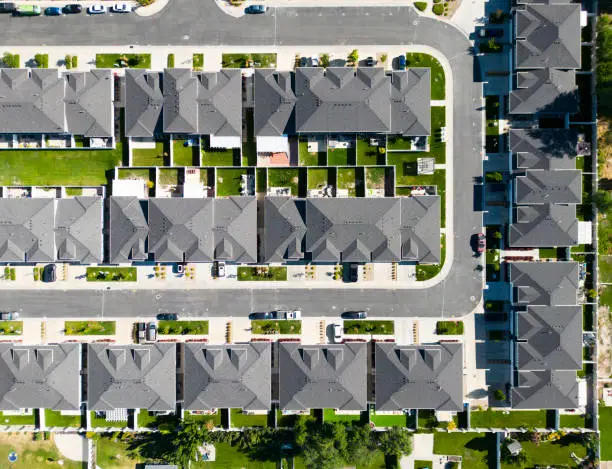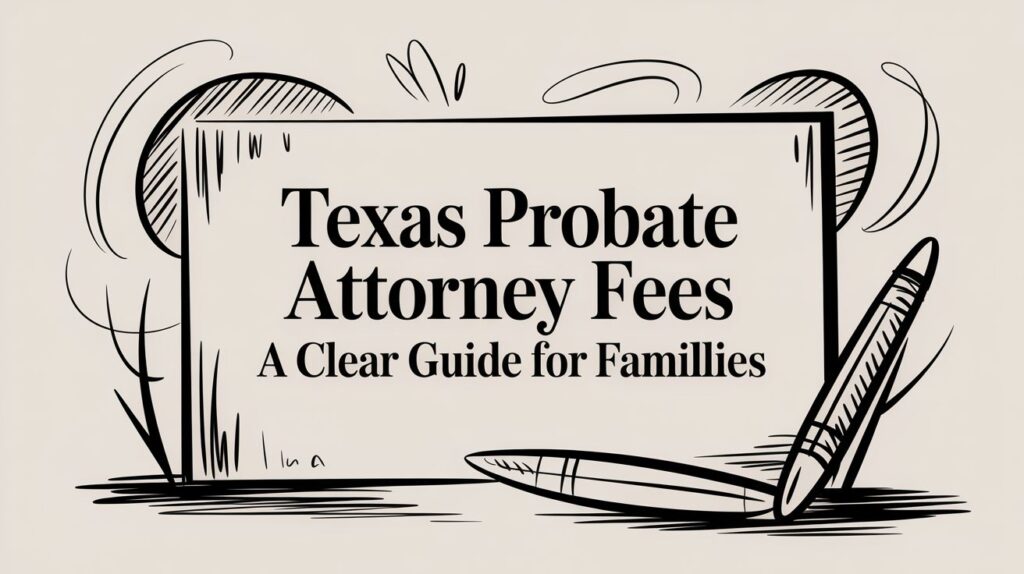When a homeowner in Texas passes away, the event can have significant implications not only for their family and estate but also for their Homeowners Association (HOA). HOAs are an integral part of many residential communities across Texas, governing everything from property upkeep to community rules. But what happens to a property within an HOA when it goes through probate? This article delves into the complexities of probate as it relates to homeowners associations in Texas, exploring the legal, financial, and practical impacts on both the estate and the HOA.
Understanding Probate and Its Process in Texas
Before we explore the specific impact of probate on HOAs, it’s essential to have a clear understanding of what probate is and how it works in Texas.
Probate Basics
Probate is the legal process of administering a deceased person’s estate. It involves validating the will (if one exists), paying off debts and taxes, and distributing the remaining assets to the rightful heirs or beneficiaries. In Texas, probate can be either independent or dependent. Independent probate allows the executor to administer the estate with minimal court supervision, while dependent probate requires more oversight from the court, making the process lengthier and more complex.

How Properties Are Handled in Probate
When a homeowner dies, their property becomes part of their estate, and the probate process determines its fate. This includes any homes or properties located within an HOA. The executor or personal representative is responsible for managing the estate’s assets, including maintaining the property, paying any dues owed to the HOA, and eventually transferring the property to the heirs or selling it.
The Financial Impact on Homeowners Associations
HOAs rely on regular dues and assessments from homeowners to maintain the community and fund its operations. When a property enters probate, the HOA may face financial challenges that can ripple through the community.
Unpaid Dues and Assessments
One of the immediate concerns for an HOA is the potential for unpaid dues and assessments. If the deceased homeowner was behind on payments at the time of death, these unpaid amounts become part of the estate’s debts. However, during probate, there can be delays in collecting these dues, especially if the estate is complex or there are disputes among heirs. The longer the probate process takes, the greater the financial strain on the HOA, particularly in smaller communities where every homeowner’s contribution is critical.
Special Assessments and Budget Shortfalls
In some cases, if a property remains in probate for an extended period and dues go unpaid, the HOA might face budget shortfalls. To compensate, the HOA may need to levy special assessments on other homeowners, spreading the financial burden across the community. This situation can create tensions within the community, especially when multiple properties are tied up in probate at the same time.
Legal Considerations for HOAs
Beyond the financial impact, there are legal considerations that HOAs must navigate when a property within the community goes through probate.
Liens and Claims Against the Property
Texas law allows HOAs to place a lien on a property for unpaid dues and assessments. However, when a property is in probate, the process of enforcing these liens can become more complicated. The HOA may need to file a claim against the estate to recover unpaid dues. This claim must be timely and correctly filed within the probate process, or the HOA risks losing its ability to collect.
Transfer of Property and New Owners
Once the probate process concludes, the court transfers the property to heirs or initiates its sale. HOAs must inform new owners about the community’s rules, regulations, and financial obligations. They also ensure payment of any outstanding dues before finalizing the ownership transfer. Failure to do so can result in disputes between the HOA and the new owners.
Practical Challenges for HOAs

Managing a property in probate presents several practical challenges for an HOA, especially regarding property maintenance and community standards.
Property Maintenance During Probate
Maintaining the property during probate is crucial to preserving the community’s appearance and property values. However, during probate, it may be unclear who is responsible for the property’s upkeep, especially if there is a delay in appointing an executor or if the heirs are out of state. The HOA may need to step in to maintain the property, incurring additional costs that can be difficult to recover.
Communication with Executors and Heirs
Effective communication is key to navigating the probate process smoothly. HOAs must identify and establish contact with the executor or personal representative as soon as possible to address any issues related to the property. Clear communication ensures that the HOA’s interests are protected and that the estate fulfills its obligations to the community.
Navigating Property Sales and Transfers
If the property is to be sold, the HOA may need to work with real estate agents, lawyers, and the executor to ensure the sale complies with the community’s covenants and restrictions. This includes ensuring that any outstanding dues are paid at closing and that the buyer is aware of their obligations as a new member of the HOA.
Case Studies: Real-World Examples
To illustrate the impact of probate on HOAs, let’s look at a couple of real-world examples from Texas communities.
Case Study 1: The Delayed Probate Process
In one Texas neighborhood, a homeowner passed away without a will, leading to a lengthy probate process. The property remained in legal limbo for over two years as the court sorted through various claims from distant relatives. During this time, the HOA struggled with unpaid dues and rising maintenance costs for the unoccupied property. The HOA eventually had to impose a special assessment on the remaining homeowners to cover the shortfall, leading to frustration and dissatisfaction within the community.
Case Study 2: Smooth Transition Through Communication
In another case, an HOA faced the probate of a property after the owner passed away suddenly. However, the HOA board quickly reached out to the appointed executor, establishing clear communication from the outset. The executor was cooperative, paying the outstanding dues from the estate’s funds and ensuring the property was maintained throughout the probate process. When the property was sold, the HOA worked closely with the real estate agent to ensure a smooth transition to the new owner. This proactive approach helped prevent financial and legal issues, maintaining harmony within the community.
Mitigating the Impact of Probate on HOAs
While probate can present challenges for HOAs, there are steps that associations can take to mitigate these issues and protect the community’s financial and legal interests.
Proactive Communication and Planning
HOAs should establish protocols for dealing with properties in probate. Identify the executor or personal representative early, maintain open lines of communication, and take all necessary legal steps to protect the HOA’s interests. Being proactive can prevent many problems from arising during the probate process.
Legal and Financial Safeguards
HOAs should work with legal counsel to understand their rights and obligations when dealing with probate properties. This includes understanding how to file claims against an estate for unpaid dues and knowing when and how to enforce liens. Additionally, HOAs may consider setting aside a reserve fund to cover potential shortfalls caused by unpaid dues during probate.
Community Education and Transparency

Educating homeowners about the potential impact of probate on the HOA can foster a sense of community and cooperation. Transparency in how the HOA handles probate-related issues can also build trust and reduce tensions among homeowners, especially if special assessments or other measures become necessary.
Conclusion: Navigating the Intersection of Probate and HOAs in Texas
The intersection of probate and homeowners associations in Texas is a complex and often challenging landscape. For HOAs, understanding the probate process, being proactive in communication and legal action, and preparing for potential financial impacts are crucial to maintaining the stability and harmony of the community. By navigating this process with care and diligence, HOAs can mitigate the challenges of probate and ensure that the community continues to thrive, even in the face of unforeseen events like the death of a homeowner.
For homeowners and their families, understanding the potential impact of probate on their property within an HOA can help in planning their estates more effectively, ensuring that their final wishes are honored, and that their loved ones are not burdened with unnecessary complications. Whether you’re an HOA board member, a homeowner, or an executor, knowledge and preparation are your best allies in managing the impact of probate on homeowners associations in Texas.








